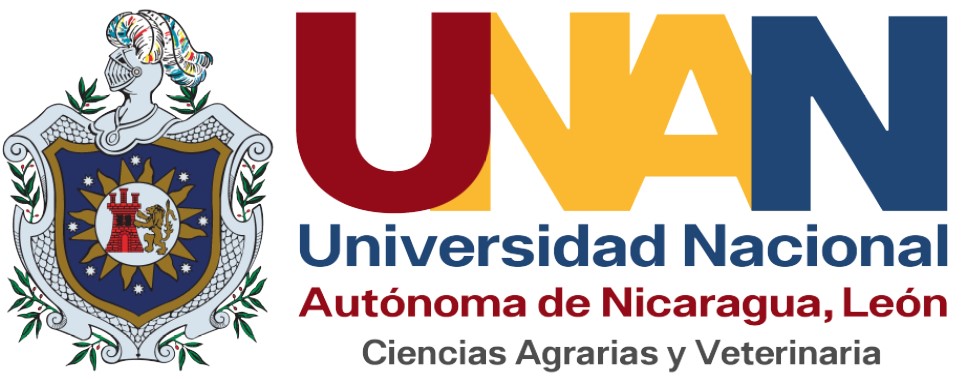Native forests and sustainable management in the Argentine dry Chaco
DOI:
https://doi.org/10.5377/ribcc.v6i11.8479Keywords:
Environment, Sustainable Development, Territory plannignAbstract
In the present work we analyze a particular case at the national and sub-national level (deepening the province of Chaco), from the theoretical perspective of sustainable development. This is the case of the use of natural resources, the interaction forest / agricultural activity, the regulation and implementation of the package of public policies to a particular sector of the economy: the forestry sector of the province and its interaction with native forests. The objective of this work is to observe the impact of the implementation of Law 1762-R (formerly 6409) (OTBN) where the use of natural resources is carried out in a way that enables the satisfaction of the needs of the present without compromising the future generations . The case of the implementation of the Law meant a before and after in the regulation of forestry, forestry and industrial activity, its inter-relationship with the expansion of the agricultural frontier and with citizens in general. However, it is immersed in a national development strategy that does not allow it to overcome the mechanisms of value transfer to central countries under the extractive logic as a productivity compensation mechanism.
Downloads
Metrics
References
Chirinos, N. M., & González, S. R. (2006). Concepciones del desarrollo en el Siglo XX: Estado y Política Social. Revista de Ciencias Sociales (Ve), 12(2), 205-222.
Derewicki, J. V., (2010). Quebracho. Árbol de hierro., Resistencia: AG Print.
Evans, P., (1996). El Estado como problema y como solución. Desarrollo económico, 35(140), pp. 529-562.
Féliz, M. (2012). Neoextractivismo, neodesarrollismo y proceso de acumulación de capital. ¿Superando el ciclo stop-and-go? Argentina, 2003-2012. VII Jornadas de Sociología de La UNLP "Argentina En El Escenario Latinoamericano Actual: Debates Desde Las Ciencias Sociales," 2003-2012
Féliz, M., & Migliaro, A. (2017). Desigualdad en sociedades extractivistas: Intersecciones de clase, género y territorio en el neodesarrollismo. JORNADAS: (IN)JUSTICIAS ESPACIALES EN ARGENTINA Y AMÉRICA LATINA. Mesa: "Horizontes y Fronteras de La Acción Pública Frente a Los Conflictos Urbano-Ambientales. Entre La Legitimación de La Desigualdad y La Justicia Espacial," 19. Retrieved from http://www.memoria.fahce.unlp.edu.ar/trab_eventos/ev.10086/ev.10086.pdf
Gudynas, E. (2011) “Buen Vivir: Today’s Tomorrow”, Development 54(4): 441–447
Hull, J. P. (1996). From Rostow to Chandler to you: how revolutionary was the second industrial revolution?. Journal of European Economic History, 25(1), 191.
Kay, C., (1991). "Teorías latinoamericanas del desarrollo". Nueva Sociedad, N° 113, pp. 101-113.
Long, N (2007) Sociología del desarrollo: una pers pectiva centrada en el actor ..México:Colegio de San Luis y Centro de Investigaciones y Estudios Superiores en Antropología Social (CIESAS).
Mujica Chirinos, N. y Rincón González, S., (2006). "Concepciones del desarrollo en el Siglo XX: Estado y Política Social". Revista de Ciencias Sociales, Vol. XII, N° 2, pp. 205-222.
Nahón, C., Rodríguez Enríquez, C. y Schorr, M., (2006). El pensamiento latinoamericano en el campo del desarrollo del subdesarrollo: trayectoria, rupturas y continuidades. AAVV, Crítica y teoría en el pensamiento social latinoamericano, pp. 327-388.
Negri, Tony (1991) "John Maynard Keynes y la teoría capitalista del Estado en el 29". En El Cielo por Asalto Nº 2, Otoño.
Nori, A. K., Shukla, D., Christensen, Y., Krishnaprasad, M., & Sedukhin, I. (2016). U.S. Patent No. 9,336,060. Washington, DC: U.S. Patent and Trademark Office.
Osorio, J., (2016). "Teoría Marxista de la dependencia. Historia, fundamentos, debates y contribuciones". s.l.:Los Polvorines: Ediciones UNGS..
Pelozo, R. A., (2012). Finanzas Públicas. Resistencia: Contexto.
Prebisch, R. (1976). Crítica al capitalismo periférico. Revista de la CEPAL.
Rosenstein-Rodan, P. N. (1943). Problems of industrialisation of eastern and south-eastern Europe. The economic journal, 53(210/211), 202-211.
Sabsay, D. A., (2003). "Constitución y ambiente, en el marco del desarrollo sustentable". En: Ambiente, Derecho y Sustentabilidad. Buenos Aires: La Ley, pp. 67-82.
Secretaría de Política Económica y Planificación del Desarrollo, S. d. P. E. D. N. d. P. R. -. D. N. d. P. S. d. M. d. E. y. F. P. N., (2016). INFORMES PRODUCTIVOS PROVINCIALES - CHACO, AÑO 1, N° 6., C.A.B.A.: s.n.
Svampa, M., (2017). "Cuatro Claves para leer América Latina". Nueva Sociedad, Nº 268, ISSN:0251-3552, www.nuso.org.
(SAyDSN), S. d. A. y. D. S. d. l. N., (2010). Sistema de indicadores del Desarrollo Sostenible en Argentina. Versión sintética, quinta edición.. Buenos Aires: s.n.
(UMSEF), U. d. M. d. S. d. E. F. d. l. D. d. B. d. N., (2016). Monitoreo de la superficie de Bosque Nativo de la República Argentina. Regiones forestales Parque Chaqueño, Yungas, Selva Paranaense y Espinal. Período 2014-2015, Ciudad Autónoma de Buenos Aires: Ministerio de Ambiente y Desarrollo Sustentable de la Nación.
Weinstein, J., & Yildiz, M. (2013). Robust predictions in infinite-horizon games—An unrefinable folk theorem. Review of Economic Studies, 80(1), 365-394.
Zarrilli, G. A., (2004). Historia y economía del bosque chaqueño: la mercantilización de los recursos forestales (1890-1950). Universidad Nacional de Quilmes/CONICET, Anuario IEHS 19, pp. 255-283.
Downloads
Published
How to Cite
License
Copyright (c) 2020 Ibero-american JournalL of Bioeconomy and Climate Change e-ISSN 2410-7980

This work is licensed under a Creative Commons Attribution-NonCommercial-ShareAlike 4.0 International License.
Copyright © 2025 Rev. iberoam. bioecon. climate change. National Autonomous University of Nicaragua León (UNAN-León), Knowledge Area of Agrarian and Veterinary Sciences / Specific Area of Agroecology and Agribusiness / Center for Research in Agrarian Sciencies. Academic Directorate. Research Department. Publication and scientific events Unit.












 EDITORIAL
EDITORIAL e-ISSN
e-ISSN


 COPYRIGHT
COPYRIGHT This work is licensed under a Licencia Internacional
This work is licensed under a Licencia Internacional 












